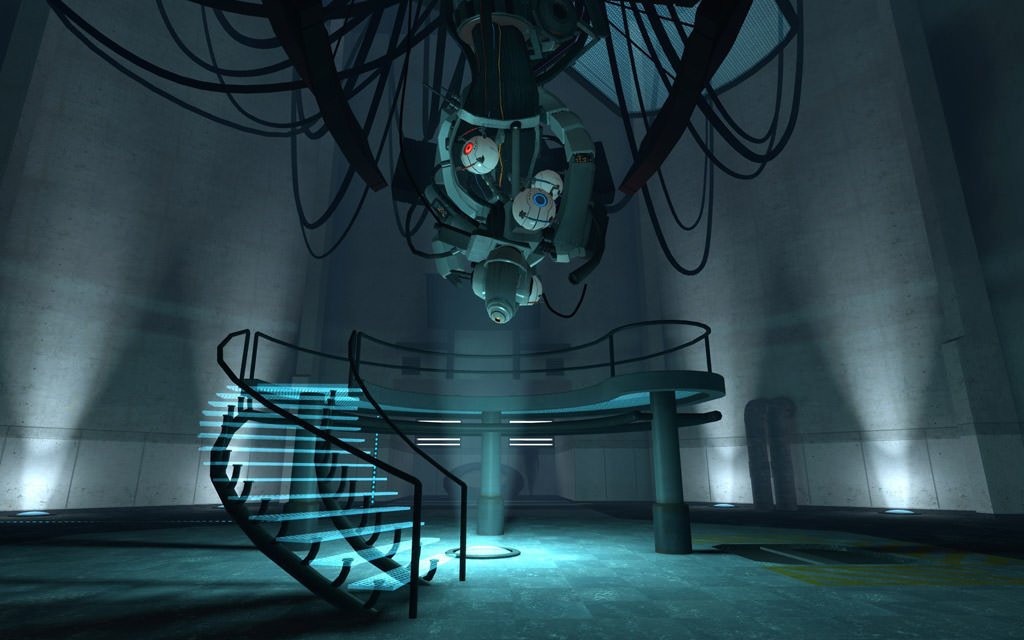Pacific Rim hit
theaters just a little while back and made over thirty-seven million dollars during
its opening weekend. It is an action-packed film, and for a movie about large
robots fighting off hulking monsters, it has a surprising amount of story. If
you haven’t heard already, Pacific Rim
has a woman of color as a main character but, sadly, the film still does not
pass the Bechdel Test. There is another
female robot pilot, but she has almost no screen time and very few lines, and
in the background only a few women can be picked out of the crowds of the main
setting. But there is one familiar female voice that graces the screen, that of
Ellen McLain as the voice of robot Gipsy Danger.
There has been a rise in the use of fictional computer
voices, artificial intelligences, and virtual intelligences in recent years,
accompanying the rise in science fiction’s popularity. Voice actresses, such as Ellen McLain,
portray voices that are mechanized, concise, educated, informative, and helpful.
And it is almost always feminine. This can most prevalently be seen in the
realm of video games, where science fiction and computer advancements have
always been part of popular game design. For female-voiced AIs, video games and
movies are their domain.
 |
| GLaDOS from Portal, voiced by Ellen McLain |
Ellen McLain, most recently voicing the computer of the main
robot from Pacific Rim, is most well
known for her voice work in the Portal
franchise. While McLain’s GLaDOS (Genetic Lifeform and Disk Operating System)
from Portal may be one of the best-known
AI/VI voices from video games, the line goes on. From the popular Halo series the AI Cortana (voiced by
Jen Taylor) assists and informs the player, but also evolved to be more
sexualized as the series and graphics allowed it to. From Mass Effect 2 and Mass Effect
3 there comes EDI (voiced by Tricia Helfer), a female voiced AI that
chooses a provocative robotic female body to integrate with. Going farther back, before the turn of the
century, there was the intense computer SHODAN (voiced by Terri Brosius) from
the System Shock series. Some of the
most memorable computer programs from the last few generation of game consoles
have been vocalized as feminine.
 |
| SHODAN from System Shock, voiced by Terri Brosius |
Why is this? With the
recent backlash at the video game community for its lack of strong female
characters, it is interesting to see that many of the ‘fake’ people or minds in
video games are portrayed as or performed as female. Artificial intelligences are not true people,
but the prevalence to refer to GLaDOs as ‘she’ instead of ‘it’ remains. These computers contain a mixture of
stereotypically gendered traits, from the feminine gracefulness to the
masculine lack of emotion. But these computer programs share a lot of traits
with successful women in the workplace; they are effective, hard working,
confident, knowledgeable, and self-reliant. Given this there is still, in most
cases, no realistic middle ground; these AIs are either helpful, following
orders as an artificial assistant, or they are cruel, manipulative and against
the player character.
 |
| The evolution of Cortana's appearance. |
Sadly, it seems that video games create more female voiced
or bodied avatars when they make them out of metal instead of bone. This trend is changing as reimagined classic
female characters reemerge and new characters are created, but video games
still have a long way to go in character equality. Fully-fledged female
characters in video games are still hard to come by, but these exaggerated,
objectified feminine computer programs are actually very well known and persistent. Video games have a bad reputation of
objectifying women and organizing female characters by tropes. While characters
such as GLaDOS and SHODAN are loved, these AI characters are not doing video
games any favors towards more realistic interpretations of women. While these AIs may be viewed as intelligent
women, some are sexualized without choice or representation. While Halo’s AI Cortana started off as blocky graphics
back in 2001, her most recent rendition depicts her as a seductive and naked
digitized woman. Mass Effect’s EDI
implants her own consciousness into the empty robotic shell of a metal femme
fatale. It is noted throughout the game
that EDI has chosen to inhabit an attractive form. With their attractive bodies they are also
mostly void of emotion but brimming with information and assistance.
The use of feminine-voiced computers has allowed video games
and movies to give us some beloved characters, but there is a clear split
between those that use it to represent a creation of intellect, or a creation
meant to objectify the female form. It is interesting to note that the helpful
female AIs are usually given attractive female forms, while those who are
independent and usually malicious are abstract voices.

Excellent article! I would point out that the first AI in movies, the HAL 9000, was definitely MALE in character, but loopy. Also recall several ill-fated AIs in Star Trek TOS, also male, and in Star Trek NG and its attendant games you must deal with "fully functional" Cmdr. Data.
ReplyDeleteI rarely talk to other women as my best friends are all male. I, as a woman, fail the bechdel test.GLaDOS is fine considering the game she's in and she passes the test. I can see and understand your other points, though.
ReplyDelete